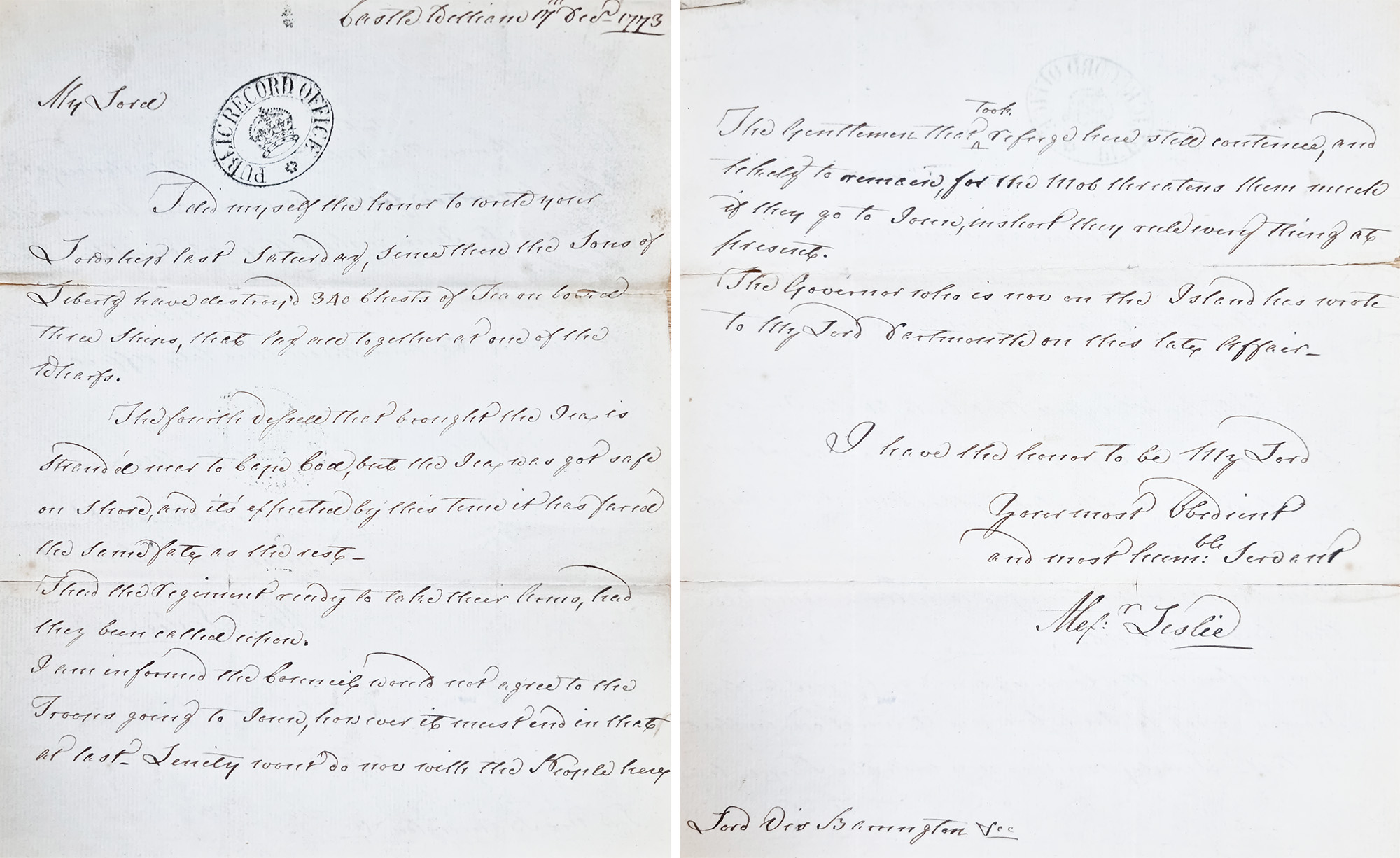
Earliest British account of the Boston Tea Party, 17 December 1773. Catalogue ref: WO 40/1
This letter was written by Lieutenant Colonel, Alexander Leslie of the 64th Regiment of Foot to Lord Viscount Barrington, the Secretary at War. Leslie was writing from his barracks at Castle William on an island in Boston Harbour on the day after the Boston Tea Party.
Notes:
* ‘The Gentlemen’ were probably customs officials and tea agents who sheltered at Castle William to avoid the people of Boston.
* ‘Sons of Liberty’ was an organization formed in the American Colonies in 1765 to oppose the Stamp Act. They supported colonial resistance against the British Crown with petitions and assemblies before the American Revolution.
Transcript
Castle William 17th December 1773
My Lord
I did myself the honor to write your Lordship last Saturday, since then the Sons of Liberty* have destroy’d [destroyed] 340 Chests of Tea on board three ships, that lay all together at one of the Wharfs.
The fourth vessel that brought the Tea is strand’d [stranded] near to Cape Cod, but the Tea was got safe on Shore, and it’s expected by this time it has fared the same fate as the rest.
I had the regiment ready to take their Arms, had they been called upon.
I am informed the Council would not agree to the Troops going to town, however it must end in that at last. Lenity [gentleness] won’t do now with the People here. The Gentlemen* that took refuge here still continue and likely to remain, for the mob threatens them much if they go to town, in short, they rule everything at present.
The Governor who is now on the Island, has wrote to My Lord Dartmouth on this late Affair.
I have the honor to be My Lord
Your most Obedient
and most humble Servant
Alexr. [Alexander] Leslie
- Why do you think that Lt. Col. Leslie has been stationed to an island in Boston Harbour rather than in the town of Boston?
- What does the letter infer about his attitude to these events?
- What are the strengths and weaknesses of this account for understanding these events?
- Do you think there is anything surprising/unusual about this letter?
- Find out and explain how the British military position changed in Boston after the Boston Tea Party.
